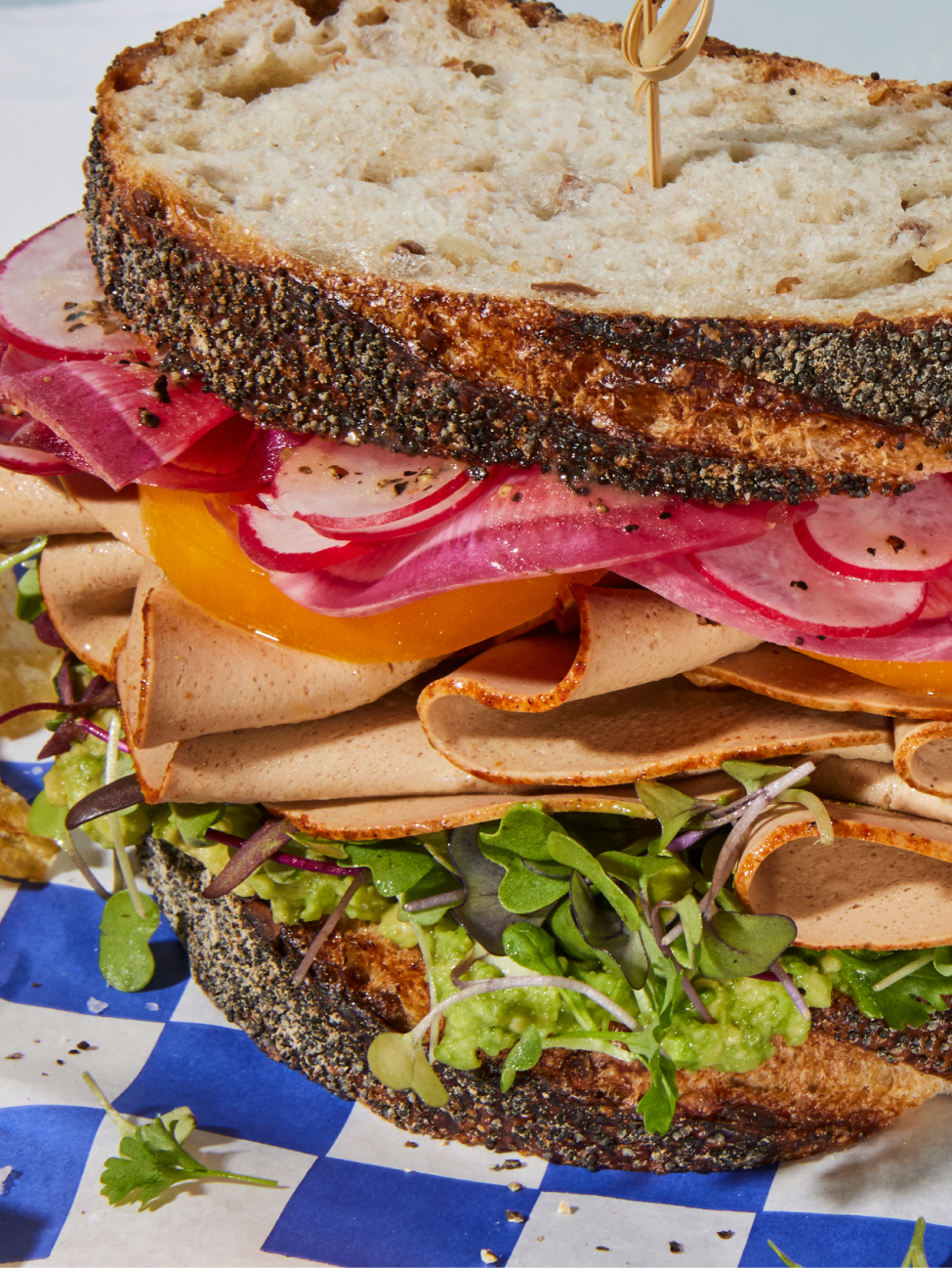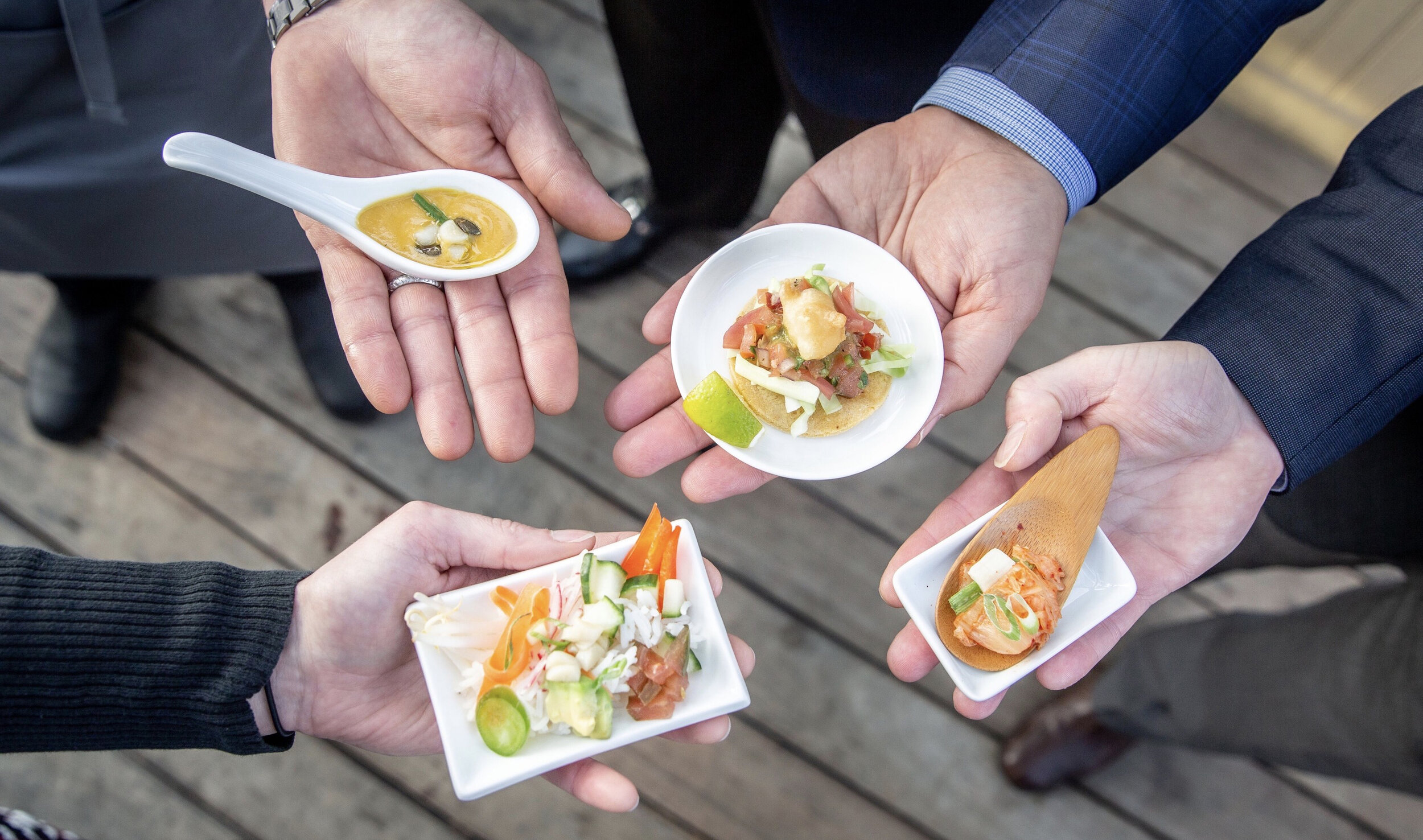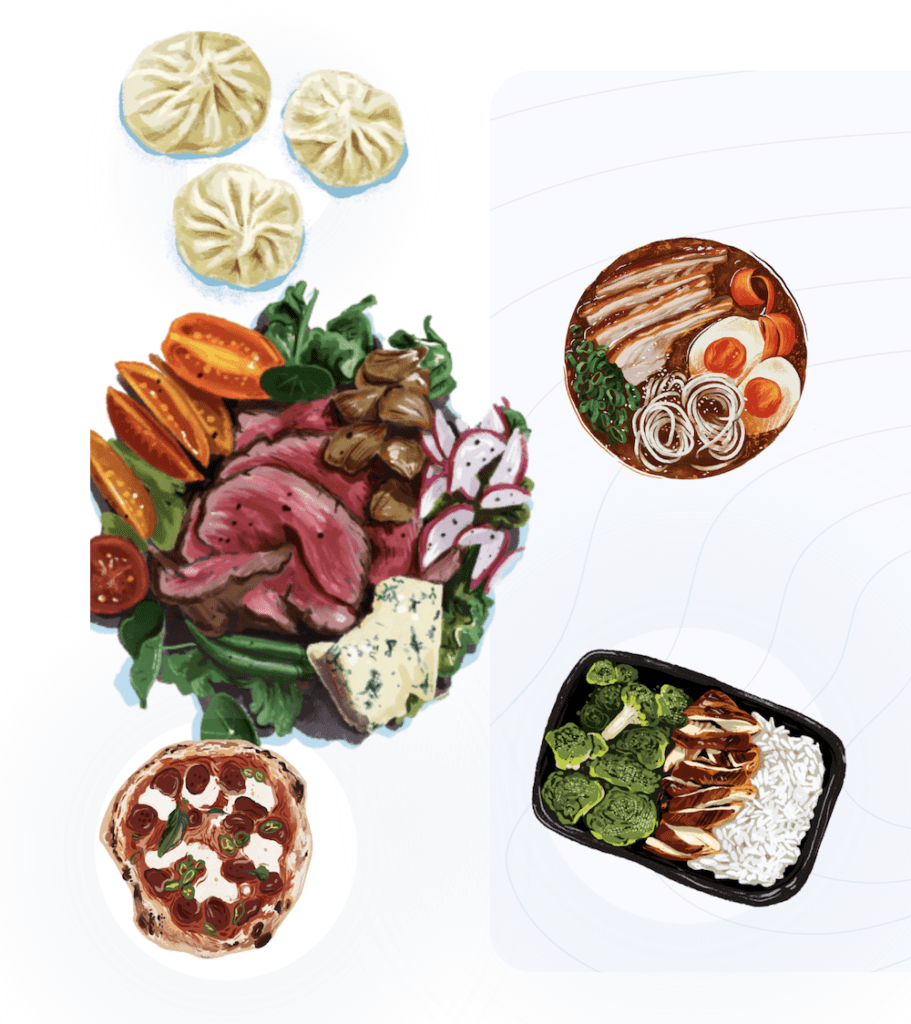The future of food is upon us and it sets the stage for a fundamental shift in how we produce, manufacture, buy, and sell food in our world.
Over the past year or so, I have interviewed some great guests in the space on the Disruptors for GOOD and Investing in Impact podcasts.
Terms like Regenerative Farming, Regenerative Agriculture, Cellular Agriculture, Aquaculture, Alternative Protein, and Sustainable Supply chains, are all leading the way to redefine how we interact with food on many levels.
What is Cellular Agriculture?
Cellular agriculture is a branch of food technology that deals with the production of animal cells in a controlled environment. It is an alternative to traditional livestock farming and could potentially provide a more efficient and sustainable way to produce meat and other animal products.
The first step in cellular agriculture is to culture cells from an animal in a laboratory setting. These cells are then placed in a nutrient-rich environment that allows them to grow and multiply. Once the cells have reached a certain size, they can be harvested and used to create meat or other animal products.
It could potentially reduce the impact of traditional livestock farming on the environment, and provide a more humane option for those who do not want to eat animals that have been raised in factory farms.
Dr Olivia Ogilvie of the Office of the Prime Minister’s Chief Science Advisor – in New Zealand research shows:
There are two classes of cellular agriculture, both of which involve the culturing or growing of cells under controlled conditions.
The first is acellular agriculture. Acellular goods do not contain cells within the final consumer product, but instead contain proteins, fats or flavour compounds that have been isolated from cultured cells. Examples of acellular agricultural products include milk, eggs, and vanilla.
The second class is cell-based products; these contain cultured animal cells. Examples of cell-based products include meat-based foods like patties, sausages and steak.
Food produced using cellular agriculture contains authentic animal proteins and cells. Because of this, these products fundamentally differ from those made using only plant-proteins, another emerging class of alternative protein.
Read all of Dr Olivia Ogilvie research here.
What is Regenerative Agriculture and Farming?
Regenerative Agriculture really takes us back to traditional practices of being stewards of our land and resources by enacting farming and grazing practices that reverse climate change by replenishing and reinvesting in organic soil and restoring degraded soil biodiversity.
The Noble Research Institute presents these benefits from regenerative agriculture:
- Increased soil organic matter and biodiversity.
- Healthier and more productive soil that is drought- and flood-resilient.
- Decreased use of chemical inputs and subsequent pollution.
- Cleaner air and improved water cycle.
- Enhanced wildlife habitat.
- Carbon captured in the soil to combat climate variability – overall carbon drawdown.
In regenerative agriculture, it’s not just about sustainability, but rather improving what is there, leaving it better for the next generation.
Below is a curated list of cellular agriculture startups creating the future of food, through technology innovations and regenerative thought processes of how to build new supply chain infrastructures for a more healthy world.
Prime Roots

Prime Roots is on a mission to disrupt the $300+ billion bulk deli category with their delicious new lineup of sliceable, plant-based, whole Koji-Meats.
For the first time in deli history, a non-animal based offering will be available behind the glass cases at deli counters, ready to be fresh-cut for an easy swap into your favorite sandwich.
Their star ingredient koji, is a staple ingredient in Michelin Star restaurants, and has been used for centuries to make soy sauce and miso.
Its meaty texture and natural umami flavor makes koji the perfect meat substitute.
The launch demonstrates Prime Roots’ level of innovation to create a product that tastes so similar to meat and can be easily swapped/incorporated into everyday life.
The launch marks a significant milestone in the plant-based sector, as Prime Roots is set to disrupt the bulk deli category and reach a wider audience to make climate-smart food swaps.
Learn more about Prime Roots.
BlueNalu

BlueNalu’s mission is to be the global leader in cell-cultured seafood, providing consumers with great tasting, healthy, safe, and trusted products that support the sustainability and diversity of our ocean.
Global demand for seafood is at an all time high, as consumers are increasingly choosing to eat the extraordinary variety of delicious and nutritious seafood products that exist worldwide.
Unfortunately, our global supply for seafood cannot keep pace with this demand, as populations of marine species have halved since 1970. This is due to overfishing, illegal fishing, rising ocean temperatures, acidification, the effects of trawling, and a number of other environmental, social, and political challenges.
Learn more about BlueNalu here.
Because, Animals
Because, Animals is a startup with a big mission: To make the most nutritious and sustainable pet food for dogs and cats on the planet — without ever harming any animals or the environment.
By supporting Because Animals you will help bring an end to the raising of farm animals for slaughter. With fewer factory farms, we will lessen the devastating impacts of them – to our rainforests, oceans and climate. And, importantly, you’ll also be aiding in the creation of safer and more nutritious food for our pets.
Listen the podcast interview with Shannon Falconer, Co-founder and CEO of Because, Animals here.
The Better Meat Co
The Better Meat Co. harnesses the amazing power of fermentation to make delicious, versatile mycoprotein ingredients for food companies to use as the basis of their blended and fully animal-free meats.
Just as we need clean energy to compete with fossil fuels, clean meat is poised to become a competitor of factory farms. Clean meat isn’t an alternative to meat; it’s real, actual meat grown (or brewed!) from animal cells, as well as other clean animal products that ditch animal cells altogether and are simply built from the molecule up.
Listen to the podcast interview with Paul Shapiro, CEO of The Better Meat Co here.
Perfect Day
Perfect Day created a new way to make the foods you love today, for a kinder, greener tomorrow.
They’re taking the compromise out of the dairy aisle and restocking it with the best of both worlds: the taste and texture of conventional dairy, but produced sustainably, without the downsides of factory farming, lactose, hormones, or antibiotics.
The Perfect Day journey started with a simple question: what makes milk milk? If they could figure out what key ingredients give milk its amazing nutrition and ability to make so many delicious foods, they could create a way to make those foods without animals.
The company went on to discover that milk proteins — whey and casein — are the secret: these complex molecules are perfectly structured to deliver creamy, melty dairy deliciousness.
All proteins in nature are encoded by specific sequences of DNA called genes. Amazingly, every living creature on earth can understand the same genetic code.
So, to create an animal-free version of milk protein, Perfect Day simply had to introduce animal (cow) genes to an organism that wasn’t an animal.
Learn more about Perfect Day here.
Aleph Farms
Growing delicious steak means caring from the start. Starting with the building blocks of nature, cells, they keep them cozy and well fed, just like they would be inside a cow.
In 3-4 weeks they mature into the cells that comprise whole cuts of steak – just like the ones we know and love today.
Enjoying meat no longer needs to come at the expense of nature, but because of it. Aleph Farms is reimagining our food systems, one slaughter-free, net zero steak at a time.
Their steaks are meticulously grown from natural, non-GMO cells and will not contain antibiotics. They are also rigorously tested to meet the highest health and safety standards.
Learn more about Aleph Farms here.
Wildtype Foods
Wildtype is creating a new way to meet the world’s demand for seafood by creating fresh fish without the microplastics, mercury, parasites, and other toxins commonly found in seafood today.
Demand for seafood and other animal protein has never been greater, while wild sources continue to dwindle. At the same time, our global population is on track to reach nearly 10 billion by the middle of this century.
With so much new demand on our food supply, we need to create new tools to sustainably meet the environmental and food security challenges of our 21st century. This is the promise of cellular agriculture.
By growing seafood directly from cells, we now have the ability to cultivate genuine salmon and other seafood without relying on wild or farmed fish.
What’s more, we have the opportunity to keep what we all love about seafood on our plates – the delicious protein and nutritious fats – without the things we’d rather leave out: microplastics, mercury, and other common contaminants.
Learn more about Wildtype Foods here.
Finless Foods

The Finless Foods mission is to create a future for seafood where the ocean thrives. The company works toward this every day by creating delicious, alternative seafood products that help you satisfy your cravings without bait or a hook.
Finless Foods uses ground-breaking (or rather ocean-breaking) plant and cell culture technology to revolutionize the way the world sources delicious and sustainable food. Good for us. Good for the ocean.
Their cell-cultured (CC) tuna is made from real tuna cells that they grow in a well-maintained food production facility, like those used to make cheese or microbrews. The CC tuna is comparable to raw sushi grade tuna, and features all of the delicious traits of wild-caught tuna.
Learn more about Finless Foods here.
Vow

Vow is a collective of innovators, engineers, scientists, artists and foodies working to improve the quality of life for people, animals and planetary health, by reinventing food from the ground up.
The building block of biology is a cell, and by starting here all needs can be met. By taking an entirely new approach, we can now bypass raising animals and find tastes, flavors and textures completely new to us.
This new category of food will be sustainable, abundant and irresistible.
Vow creates real and delicious meat from cells, instead of breeding and killing animals. Six weeks is all it takes from a handful of cells to plating the finished meal. It’s a logical and considerate alternative from which more people enjoy the highest quality meat.
Learn more about Vow here.
Higher Steaks
HigherSteaks is about providing you with that juicy, tender and delicious meat you love but without harming our health, planet and animals. Using state-of-the-art cell culture techniques, a small sample of cells from an animal will be expanded by feeding these cells a rich and animal free growth media.
When these cells have grown we can then use different methods in order to form the desired meat product.
Learn more about Higher Steaks here.
Latest Stories
- What are Plant Based Fibers
- 7 Sustainable and Eco Friendly Floss Options
- Anshul Magotra: How Social Innovation Circle Supports Impact Entrepreneurs
- Causeartist Brief – U.S. Department of Energy x Google, Bezos Centers for Sustainable Protein, Oregon Biochar Solutions
- Evidencity: Pioneering the Fight Against Modern Slavery Through Tech








